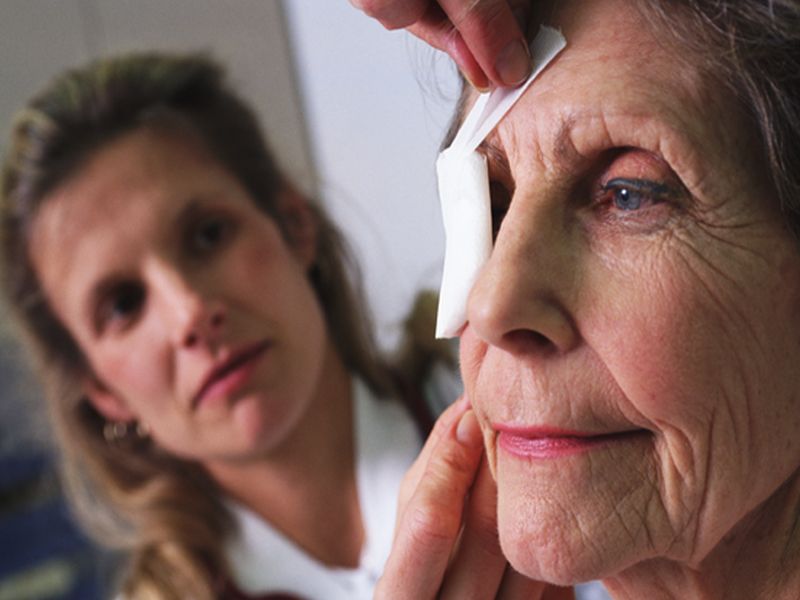Fewer Opioids After Eye Surgery Don't Mean More Post-Op Pain

FRIDAY, Nov. 1, 2019 (HealthDay News) -- Prescribing fewer opioid painkillers to patients after eye surgery did not compromise pain control, a new study shows.
It included 82 patients who had cornea surgery at the University of Michigan's Kellogg Eye Center, which implemented a new policy to give patients fewer opioid pills after surgery. Generally, many people are first exposed to opioids after surgery.
Doctors also talked to the patients about the proper use of opioids and potential risks, including addiction.
After their surgery, the patients were asked how many opioid pills they used, their pain levels, and what they did with leftover pills.
Prior to the new policy, the average opioid prescription for cornea surgery was 18.8 pills, but the number of pills patients actually took was eight. The leftover pills were often left at home or patients carried them with them.
After the policy change, the average prescription for cornea surgery fell to 6.6 pills and patients used just four.
Among patients who were prescribed the lower number of pills, 84% said the prescription was adequate to control their moderate-to-severe pain and 22% said they received more pills than they needed. Only 7% felt they received less medication than needed for pain control, according to the study in the Oct. 31 issue of JAMA Ophthalmology.
"We were very encouraged to see that even a dramatic reduction in the number of opioid pills prescribed had no negative impact on pain control," said study author Dr. Maria Woodward, cornea chief at the Kellogg Eye Center.
But she noted that none of the patients in the study properly disposed of leftover opioids by taking them to a health center or police station.
"This study shows we're making progress in the battle against opioid misuse," Woodward said in a university news release. "But we can do more to make sure that everyone knows how to prescribe them, use them and dispose of them safely."
More information
The U.S. National Institute on Drug Abuse has more about prescription opioids.

The news stories provided in Health News and our Health-E News Newsletter are a service of the nationally syndicated HealthDay® news and information company. Stories refer to national trends and breaking health news, and are not necessarily indicative of or always supported by our facility and providers. This information is provided for informational and educational purposes only, and is not intended to be a substitute for medical advice, diagnosis, or treatment.

